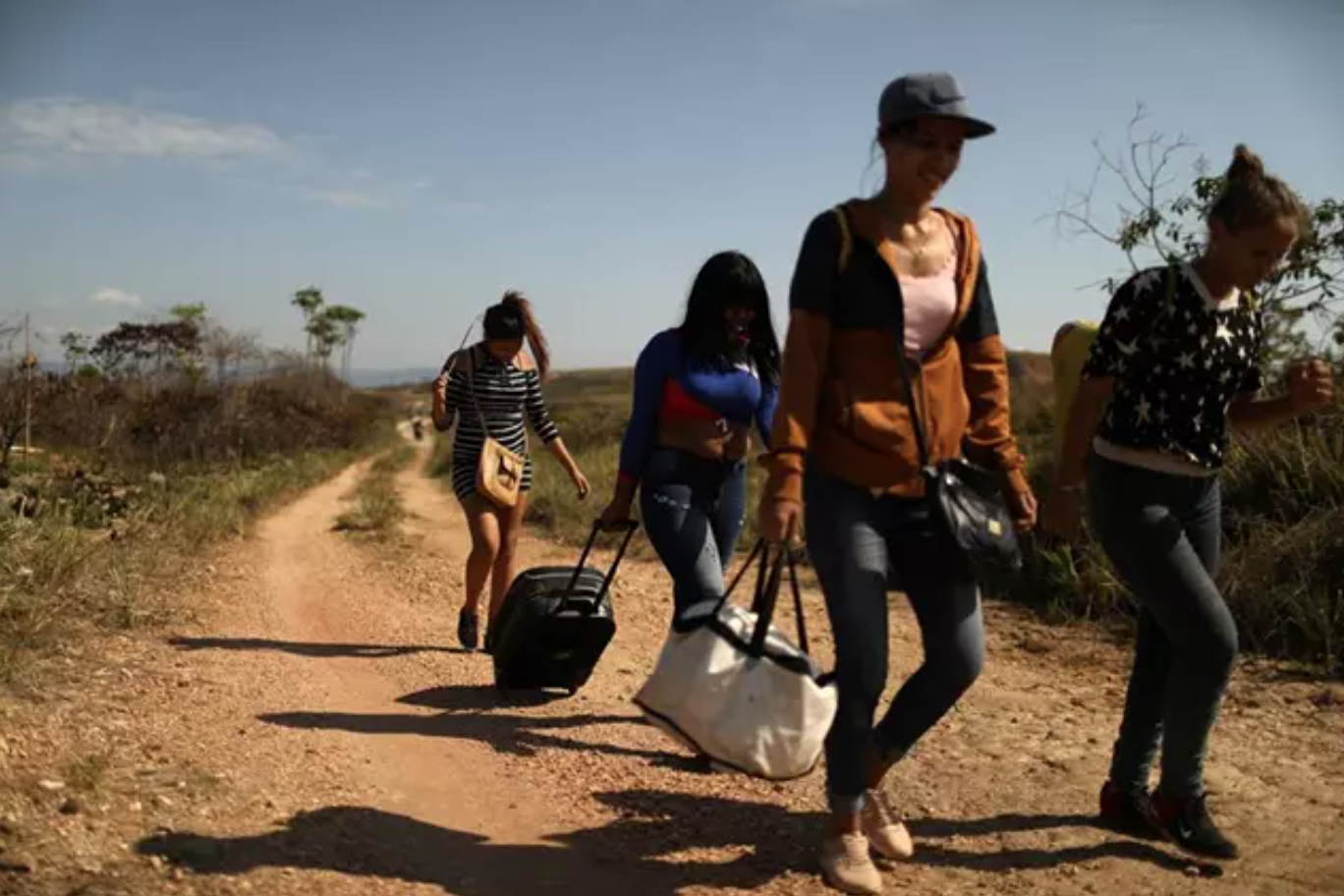Coauthor Melissa Martins Casagrande
With the displacement of people around the world, Brazil has been the destination of numerous refugee applications in the last few years. The increase in the number of applications, however, has not translated into more processing, resulting in a growing waiting list. A few years ago, this list exceeded 100,000 people, a worrying fact as it has a direct impact on the protection of these people.
Although Brazilian legislation guarantees certain initial rights, others are only accessible after recognition of refugee status. The delay in the waiting list is unacceptable, especially when the problem is not the law or the protection institute itself, but the lack of structure to process applications. This year, Brazilian Refugee Law is 25 years old, so the country should reevaluate it.
Refuge in numbers
The most important report on the subject in Brazil is prepared by the International Observatory on Migration (OBMigra), called Refuge in Numbers. The first version of the report was published in 2016, with data from 2015, a time when Brazil was experiencing changes in the refugee reality, such as an increase in the number of requests, which was beginning to strain the system. In July 2015, the National Committee for Refugees (Conare), expressed the need to reduce the liability in its minutes of the 103rd meeting.
Since then, the situation has worsened and does not seem to recompose itself, mainly because there has been an increase in the number of refugees and applicants worldwide, in addition to the persistence of the factors that generate refuge around the planet. Brazil ranks third among the countries in the Americas with the highest number of applications awaiting analysis, behind only the United States and Peru.
The waiting list, however, has been reduced recently due to the recognition of the serious and widespread violation of human rights in Venezuela, which simplified the process of recognition of refugee status for these people. This led to decision-making being made in large blocks, which were expressive since the end of 2019, to the point that Brazil declared more than 51,000 Venezuelans as refugees. However, even with this initiative, more than 90,000 Venezuelans are still waiting for a response, almost double the number of those recognized.
Another action that impacted the waiting list was the various ordinances that closed the borders in 2020 and 2021 as a consequence of the Covid-19 pandemic, as this prevented the regular entry of refugees and other migrants to Brazil. This made the regularization of both groups impossible and stagnated the number of applicants while they were in force.
The ordinances implied that, even if the person managed to enter Brazilian territory, they could not apply for refuge. The result of these measures was the emergence of an issue so far little present in Brazilian reality: the significant increase in irregular migrants and refugees, translated into a growth of more than 5,000% in deportations in 2020. This represents a huge risk by forcing the person to return to the place where his or her life and safety are threatened.
In addition, on November 20, 2020, Conare rejected 17 refugee claims without interviews on the grounds that the claims were unfounded. This decision goes against the provisions of the Refugee Law number 9.474/97, and the Normative Resolution issued by Conare itself. The allegation is that abusive applications put the very maintenance of the analysis system in difficulties. However, this type of decision entails a diminution of rights, weakening the right to refuge itself.
Abusive applications have long been the subject of debate. In 1983, Recommendation No. 30 of the UNHCR Executive Committee already analyzed the issue, pointing out the concern about the possible consequences for a person in need of protection who is unable to make a request.
This is not to imply that there are no abusive or unfounded applications, but disregarding cases without going through all the stages established by law affronts due process of law. Since the goal is protection, it is more appropriate to ensure that the person is heard as it may be a unique opportunity to share information.
The best way to resolve these situations is not restriction, but an expansion, which in the Brazilian case should occur within the scope of Conare itself. It has been observed that, although the number of people linked to the agency has increased recently, it has proved insufficient to meet the growing demand.
When you observe the rate at which applications are analyzed, you realize that it will be difficult to decrease the waiting list, which hurts the applicants, and the agency itself and makes it difficult to plan for improvements. This context opens a space for responses such as rejection without an interview, which are at odds with the law and with the protective spirit of the whole refugee rationale.
*This article is the result of a study requested by Conectas Human Rights, conducted by the authors from August 2021 to June 2022.
Melissa Martins Casagrande is a lawyer. Ph.D. in Law from McGill University, Canada. She has a post-doctorate in the Post-Graduate Program in Law at the Federal University of Paraná (UFPR) and a Master’s Degree in Law at the same institution.
Translated from Spanish by Janaína Ruviaro da Silva
Autor
Director and Professor of the Human Sciences Center (CCH) at the Federal University of Roraima (UFRR). PhD in Social Sciences from the Pontifical Catholic University of São Paulo.











